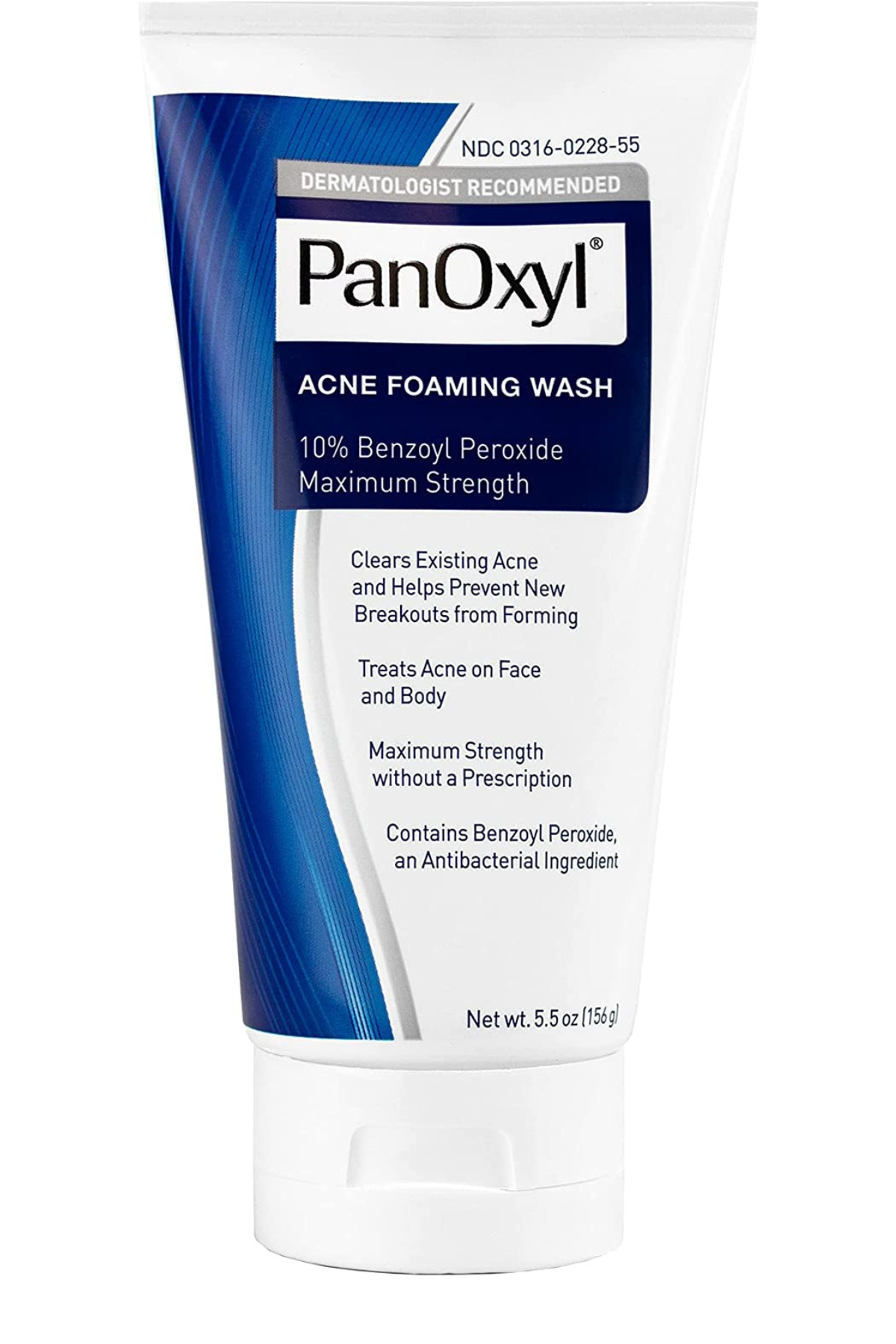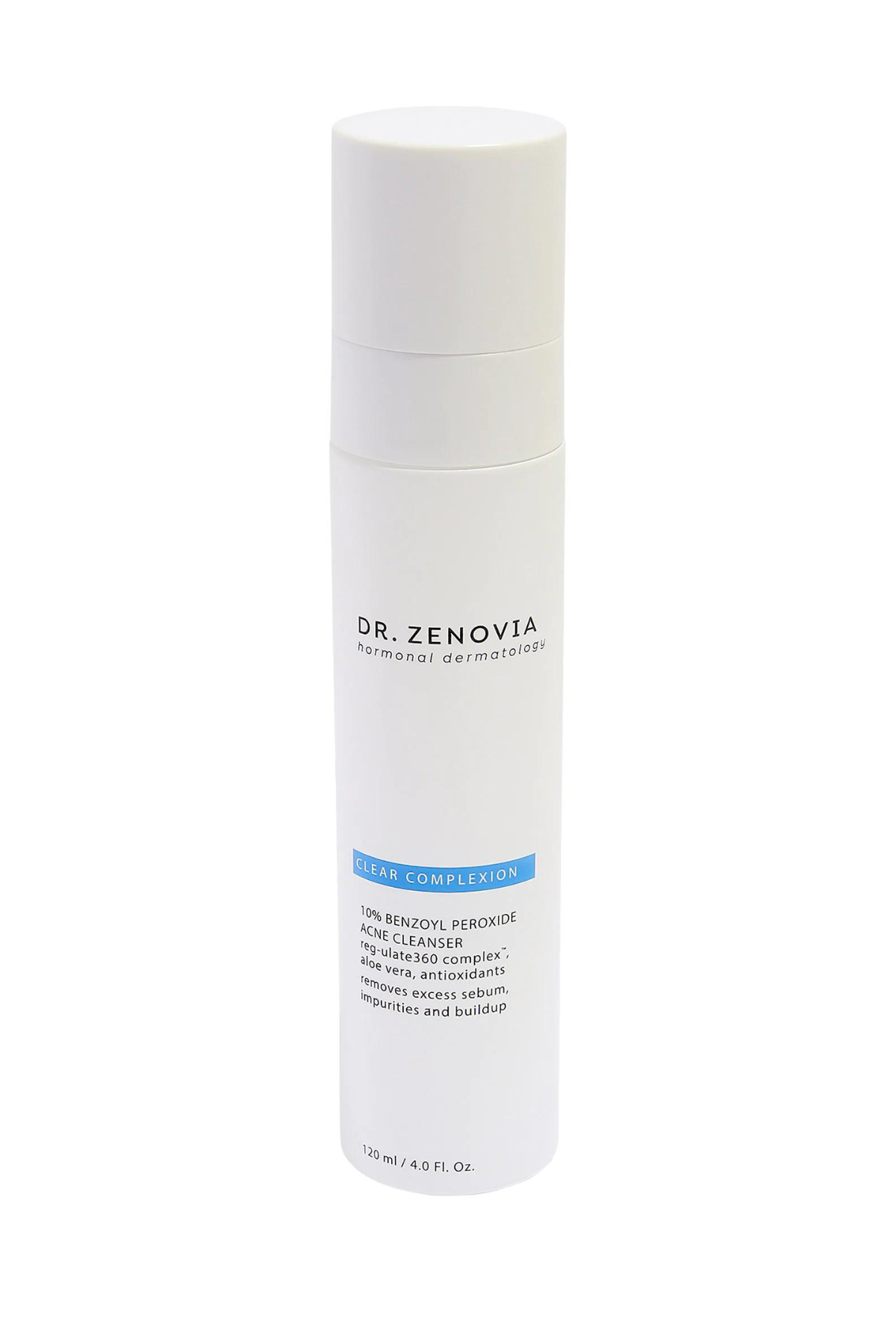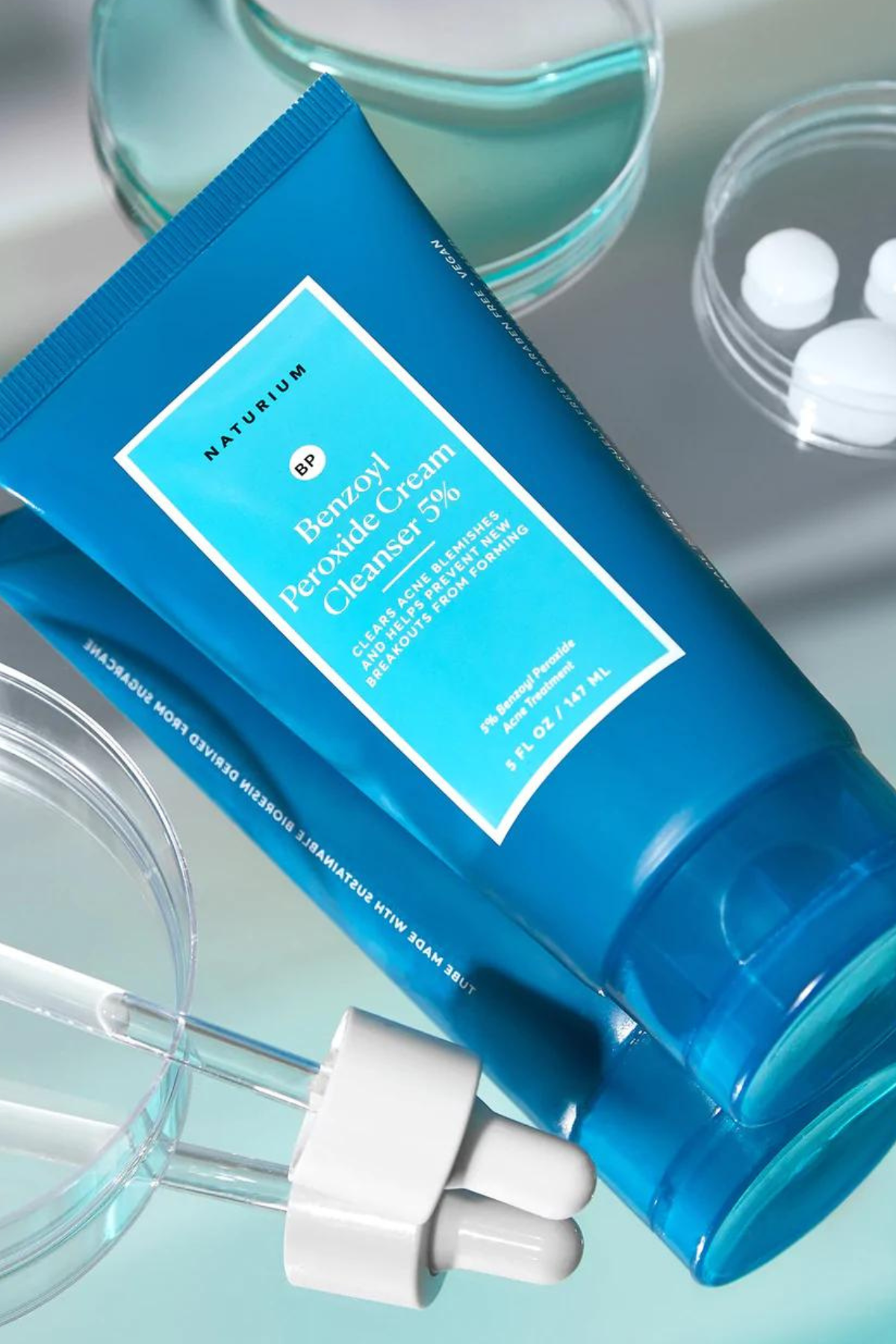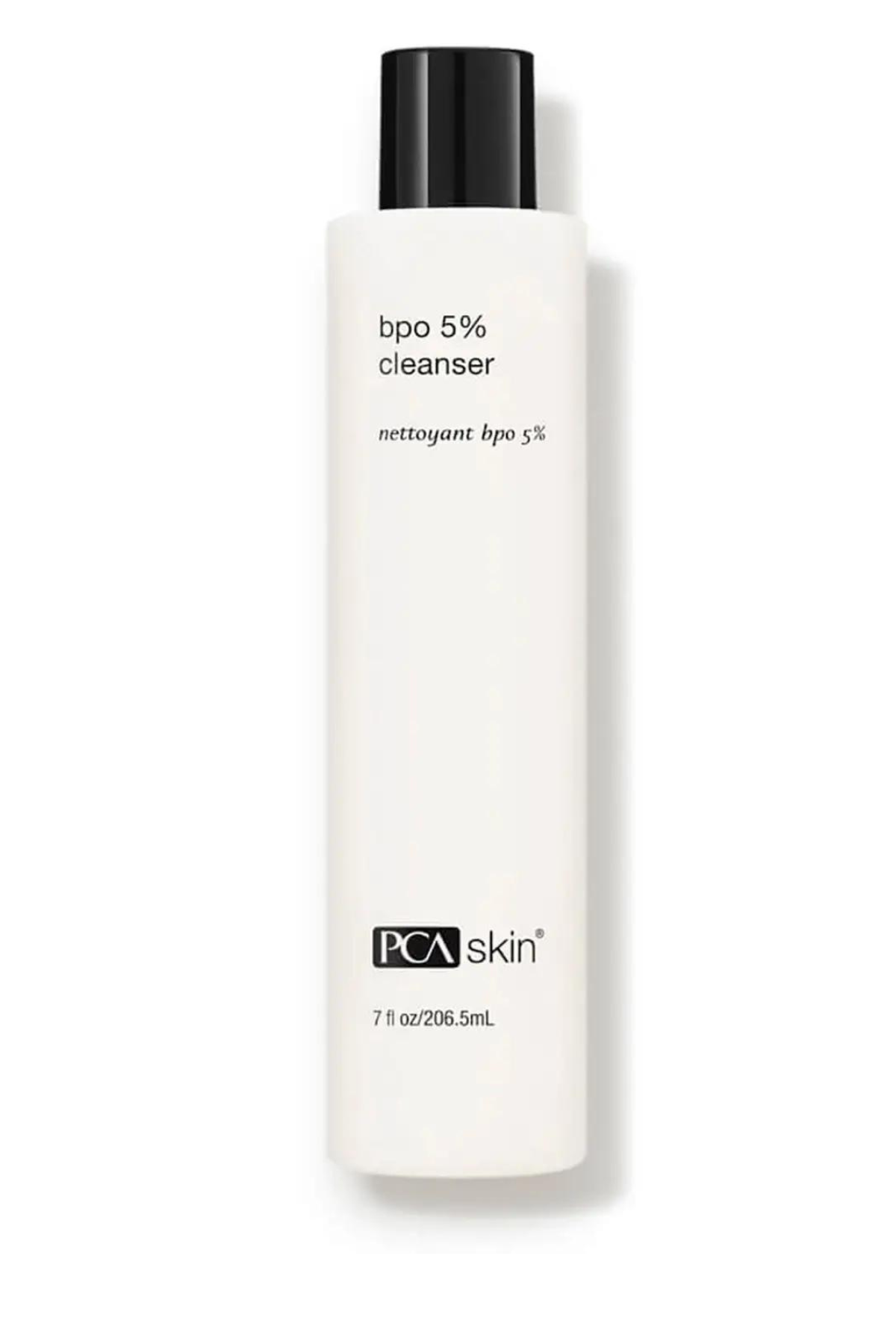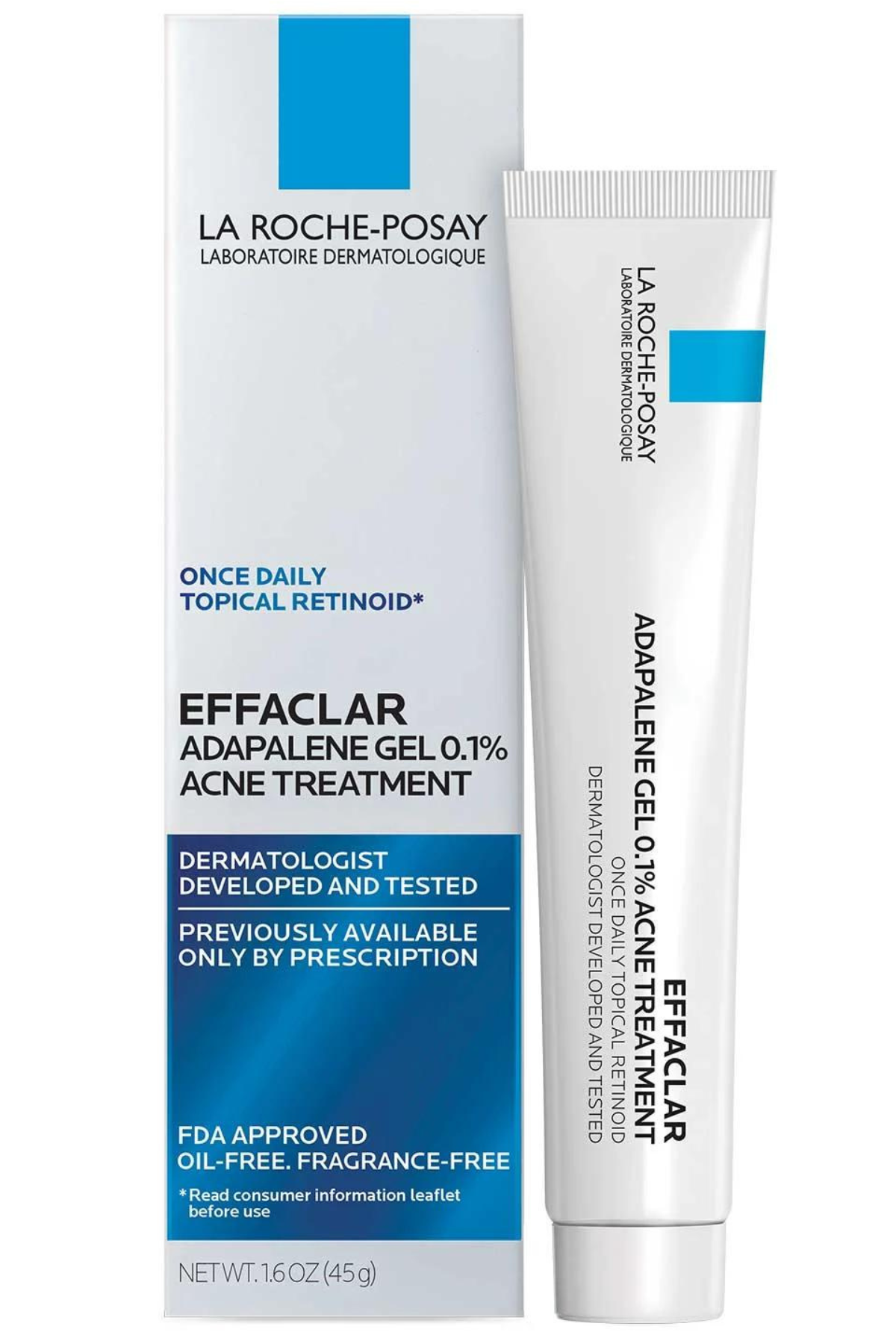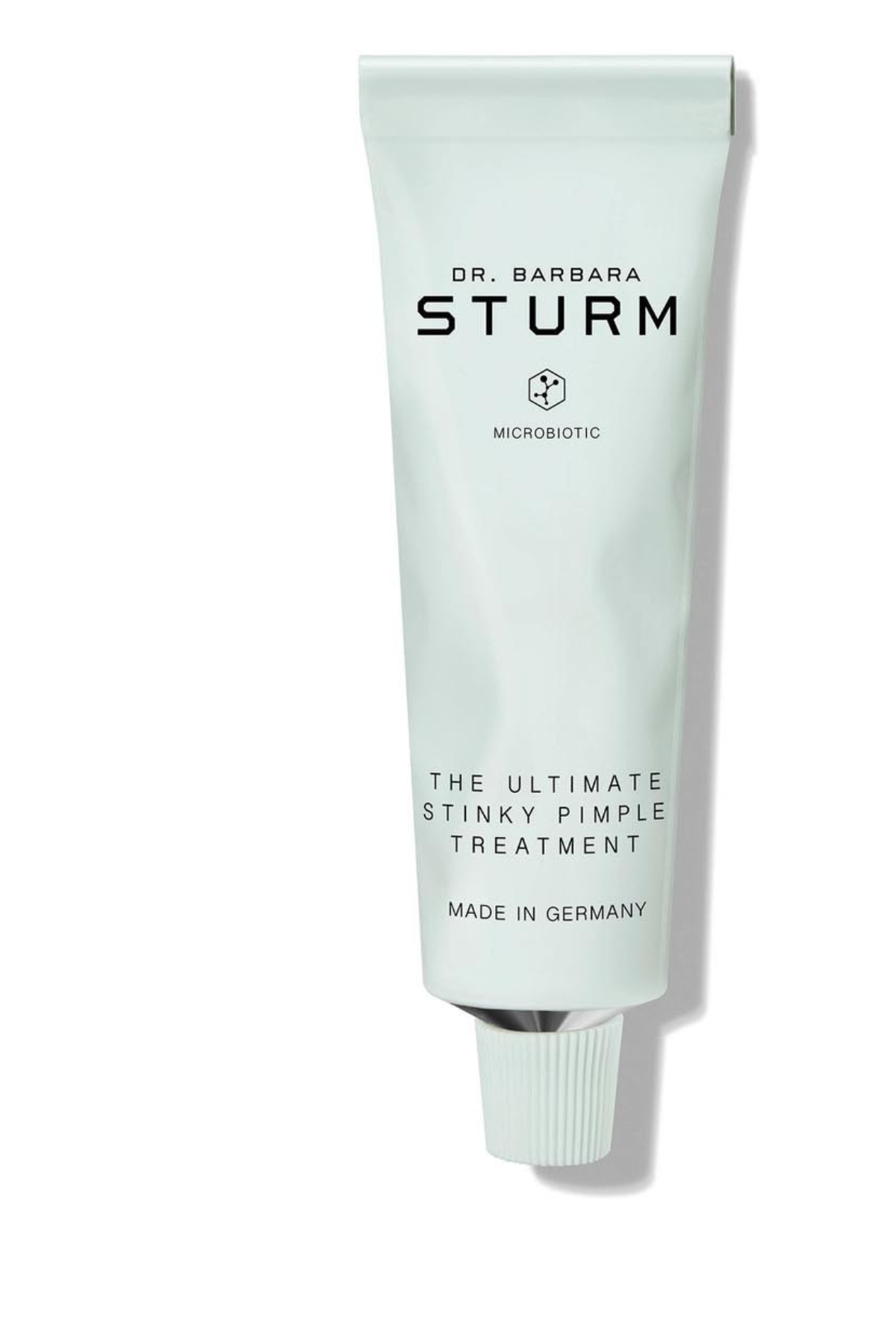How to Treat Neck Acne, According to Dermatologists
Read this before you pick and pop.
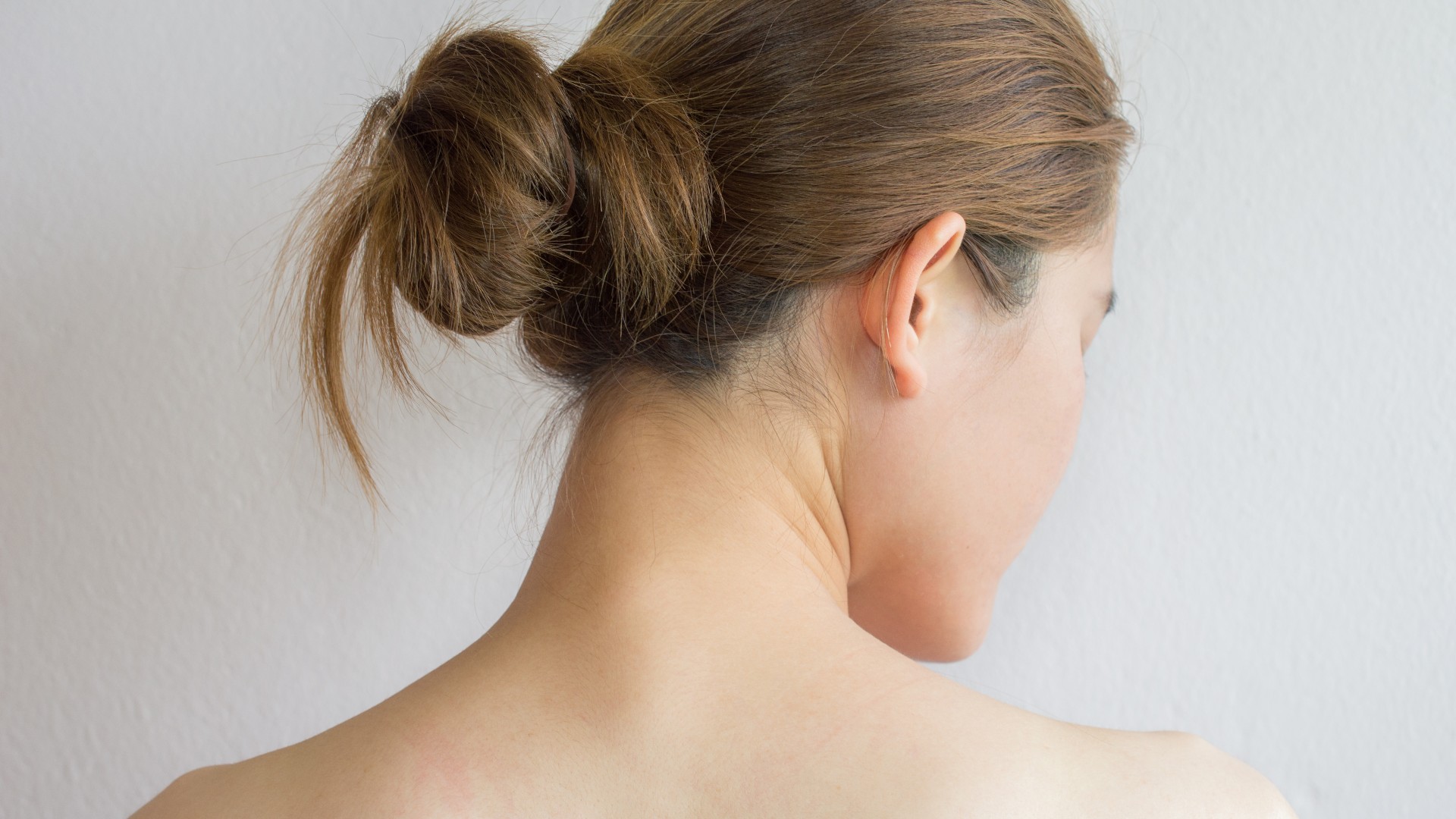

If you’re reading this, chances are it’s because you’ve found a nice and juicy little (or large) pimple on your neck. Now before spiraling into panic mode, let us assure you: neck acne, aka neckne (we love a nickname) is normal. In just the same way that you can get a blackhead on your nose or a cyst on your chin, you can get a pimple on your neck—skin is skin. A spot treatment or pimple patch can certainly help your situation, but treating neck acne is a bit more nuanced—and chances are you’re going to want the guidance of a dermatologist.
That’s why we tapped a few of our favorite pros for some insight into the lifestyle changes and skincare products that can help resolve neck acne in just a few weeks time. For some, the solution is going to be as quick and easy as switching out their shampoo. For others, a consult and a prescription might be necessary. Here, we’re breaking down everything you can do to get rid of neck acne once and for all.
What Is Neck Acne?
While you might definitely be dealing with whiteheads and blackheads, chances are your neck acne is going to present more like a cyst or underground pimple that takes some time to reach a head. Reason being, breakouts on the neck area are typically hormonal in nature. “The classic location for hormonal breakouts is the lower one-third of the face, jawline, and sides of the neck,” board-certified dermatologist Dr. Kenneth Howe explains. “These pimples tend to be deep and inflamed red bumps and flare with your menstrual cycle—typically one week before menstruation.”
Dr. Zenovia Gabriel, a board-certified dermatologist and founder of Dr. Zenovia Hormonal Dermatology, adds that the neck, similar to the jawline, has a high concentration sebaceous glands (aka oil glands) that produce more oil and flare acne when hormones (read: testosterone, progesterone, and estrogen) fluctuate. For a full debrief on hormonal acne, check out our guide to hormonal acne.
How to Get Rid of Neck Acne
There are a handful of at-home treatments you can try and habits to avoid (cough cough, picking) if you’re trying to get rid of acne. But, as always, if scarring occurs or the problem persists, it’s best to consult with your board-certified dermatologist.
Don’t Pick
This one goes without saying, but just in case you needed a little itty-bitty reminder: Keep your hands off your acne. Both dermatologists agree that touching, popping, or picking your pimples is only going to introduce bacteria and contribute to inflammation. Instead, let your pimple come to a natural head and dissolve on its own.
Assess Your Hair Products
Your shampoo and conditioner likely aren’t to blame for neck breakouts, so feel free to stick with your shower routine. But (there’s always a but…) any hair serums, oils, or leave-in conditioners that don’t get washed out might be the culprit. “Anything that you leave in can contribute to breakouts,” says Dr. Howe. “It usually happens on the skin framing the face, but if your hair reaches your neck [it’s always a possibility]. Working out with the products in your hair can also heighten the risk as the perspiration wicks product onto the skin.” Steer clear of anything comedogenic, like oils or silicones.
Get exclusive access to fashion and beauty trends, hot-off-the-press celebrity news, and more.
Shower Regularly
Dry shampoo isn’t going to cut it if you’re dealing with acne—Dr. Zenovia strongly encourages you to wash your hair every day. “If you don’t wash your hair daily, pull it up and away from the neck once it starts to get oily,” she adds.
Cleanse Thoroughly
“Relative to the face, neck skin often gets neglected,” says Dr. Howe. “People might skimp on cleansing it or removing makeup from the area. That’s the worst thing you can do because neck skin is actually thinner and more sensitive than facial skin.”
To make sure you’re getting off all the gunk—and help treat your active acne—reach for a benzoyl peroxide face wash, which is “highly effective at controlling breakouts.” Dr Zenovia adds that products with the ingredient are going to get rid of excess sebum (aka oil) and decrease acne-causing bacteria.
Grow Out Your Beard
Calling all guys: Shaving can be the cause of your neck acne. Razors can cause irritation and lead to folliculitis, which is essentially a blocked hair follicle that looks like a little red dot. “Shaving the neck opens up a whole arena of acne management. Some guys flare up every time they shave. The easiest solution is to grow out the beard,” says Dr. Howe. If that’s not in the cards for you, make sure you exfoliate before shaving, operate the razor in the direction of hair growth, and use an acne-fighting skincare regimen.
Eat Anti-Inflammatory Foods
If you are dealing with hormonal acne (as opposed to whiteheads and blackheads) changing up your day-to-day food intake might help calm down your acne. Dr. Zenovia recommends eating a low-inflammatory diet (think: nuts, seafood, leafy greens) and avoiding animal proteins, dairy, and carb- or sugar-loaded foods. The thought is that food with high sugar content or a high glycemic index prompts the oil glands to go into overdrive.
Avoid Friction-Inducing Fabrics
The same way that wearing a face mask can cause breakouts around the mouth, clothing, headgear, or equipment can cause breakouts on the neck. Add sweat into the equation and pimples become more likely to pop up.
Reevaluate Your Skincare
Benzoyl Peroxide isn’t just a great ingredient to look for in a cleanser, it’s also amazing in spot treatments. “It’s one of the most effective, non-irritating ingredients to combat acne,” says Dr. Zenovia. It’s also worthwhile to look for glycolic acid and retinol, both of which will help speed up cell turnover, get rid of dead skin cells, and prevent clogged pores.
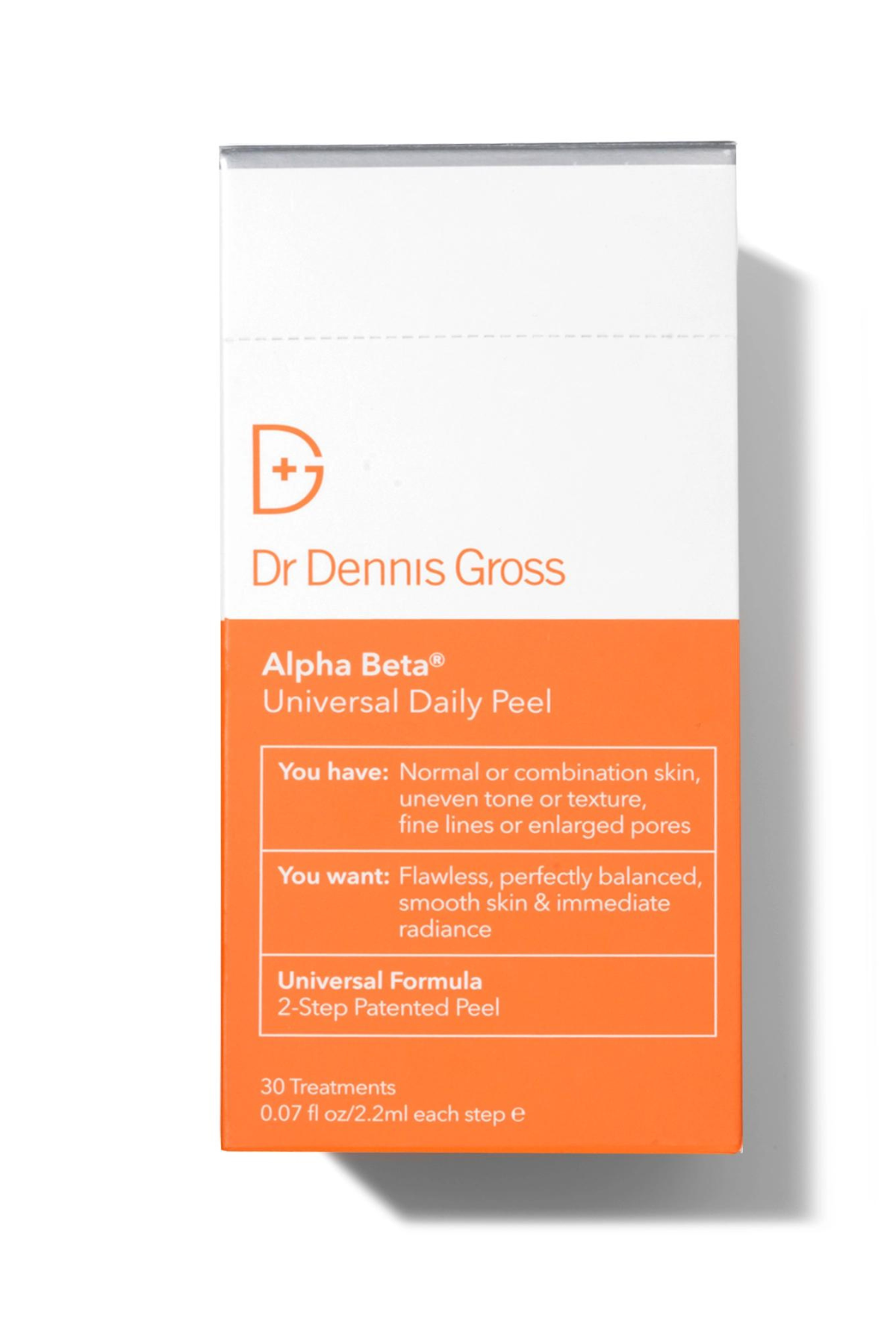
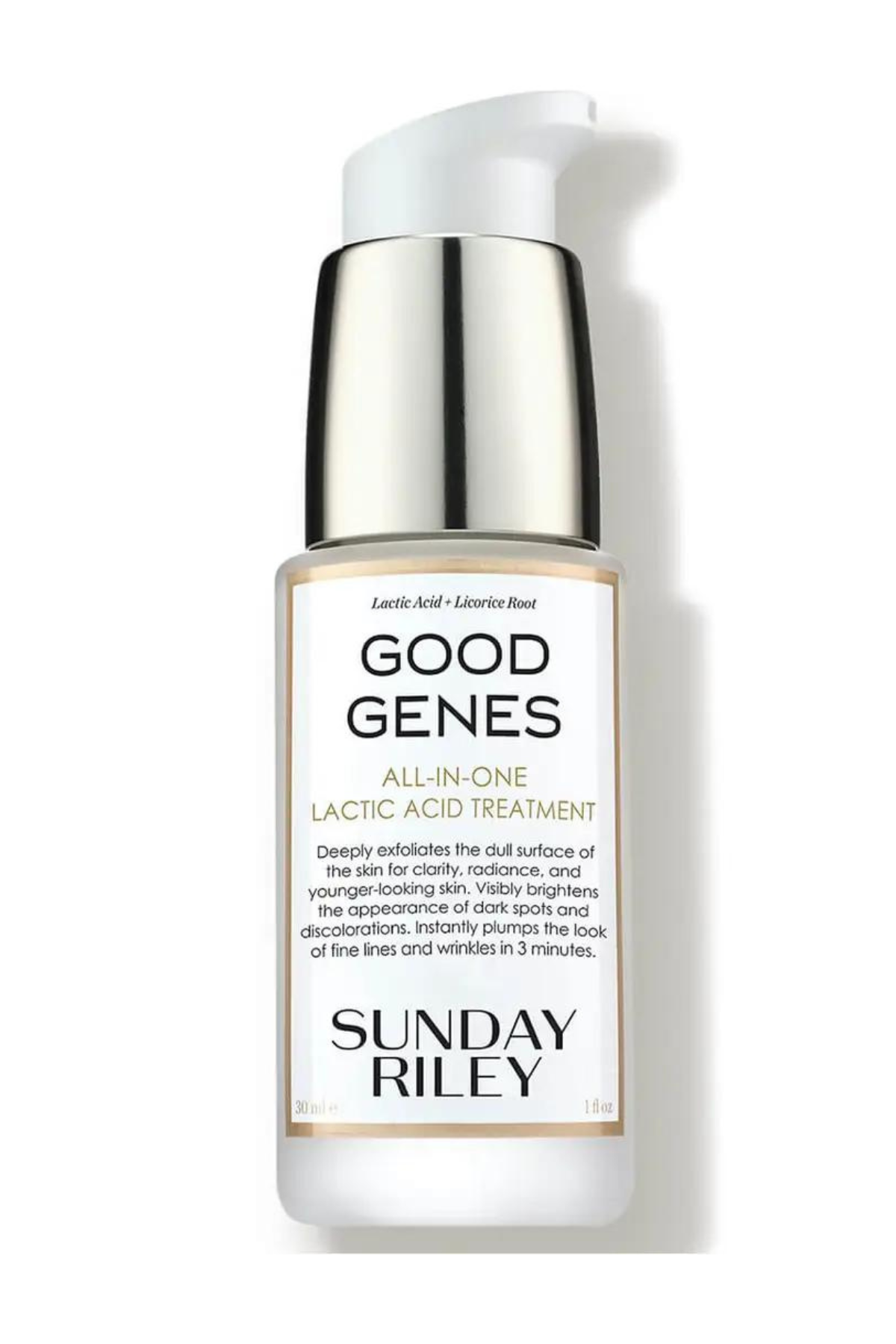
Consult With Your Dermatologist
If you’ve tried all of the above to no avail or are experiencing scarring, it’s likely time to schedule an appointment with your dermatologist. “Classical hormonal acne will not respond to anything but hormonal treatments,” explains Dr. Howe. “We often need to prescribe an oral medication.” Dr. Zenovia adds that birth control and a drug called Spironolactone, which works as a hormone blocker, are the best first line of defense for female hormonal acne. “Low dose accutane is a current favorite among dermatologists,” she adds. “The low-dose protocol decreases side effects and is very tolerable yet remains extremely effective.” For the full debrief on accutane, check out our comprehensive guide.
Try Lasers
“Laser treatments for active acne are not the gold standard,” says Dr. Zenovia. But because hormonal acne is typically cystic in nature, and as a result more likely to leave behind a scar, lasers can be a good after-the-fact option.
Meet the Experts

As a cosmetic dermatologist, Dr. Howe is known for his light touch. He believes that smaller, earlier interventions allow patients to maintain a youthful appearance while at the same time preventing or slowing further aging. Beyond aesthetic dermatology, Dr. Howe cares for a variety of medical skin conditions, with a particular emphasis on the early detection and treatment of skin cancer and the diagnosis and management of hair loss and acne. In the treatment of pattern hair loss, Dr. Howe has had great success using PRP (platelet rich plasma) and microneedling. Dr. Howe has authored two chapters in a widely-used dermatology textbook, a Photo Guide of Common Skin Disorders (Lippincott Williams & Wilkins 2003) as well as numerous medical articles in Dermatologic Surgery, Journal of American Academy of Dermatology, International Journal of Dermatology, Dermapathology and Cutis. Dr. Howe has been a featured panelist at the American Academy of Dermatology and has lectured before the American Society of Dermatologic Surgery, the American Society of Dermatopathology, the New York Academy of Medicine, and the Pediatric Dermatologic Society. He has also served on the Advisory Board for LUBRIDERM®.
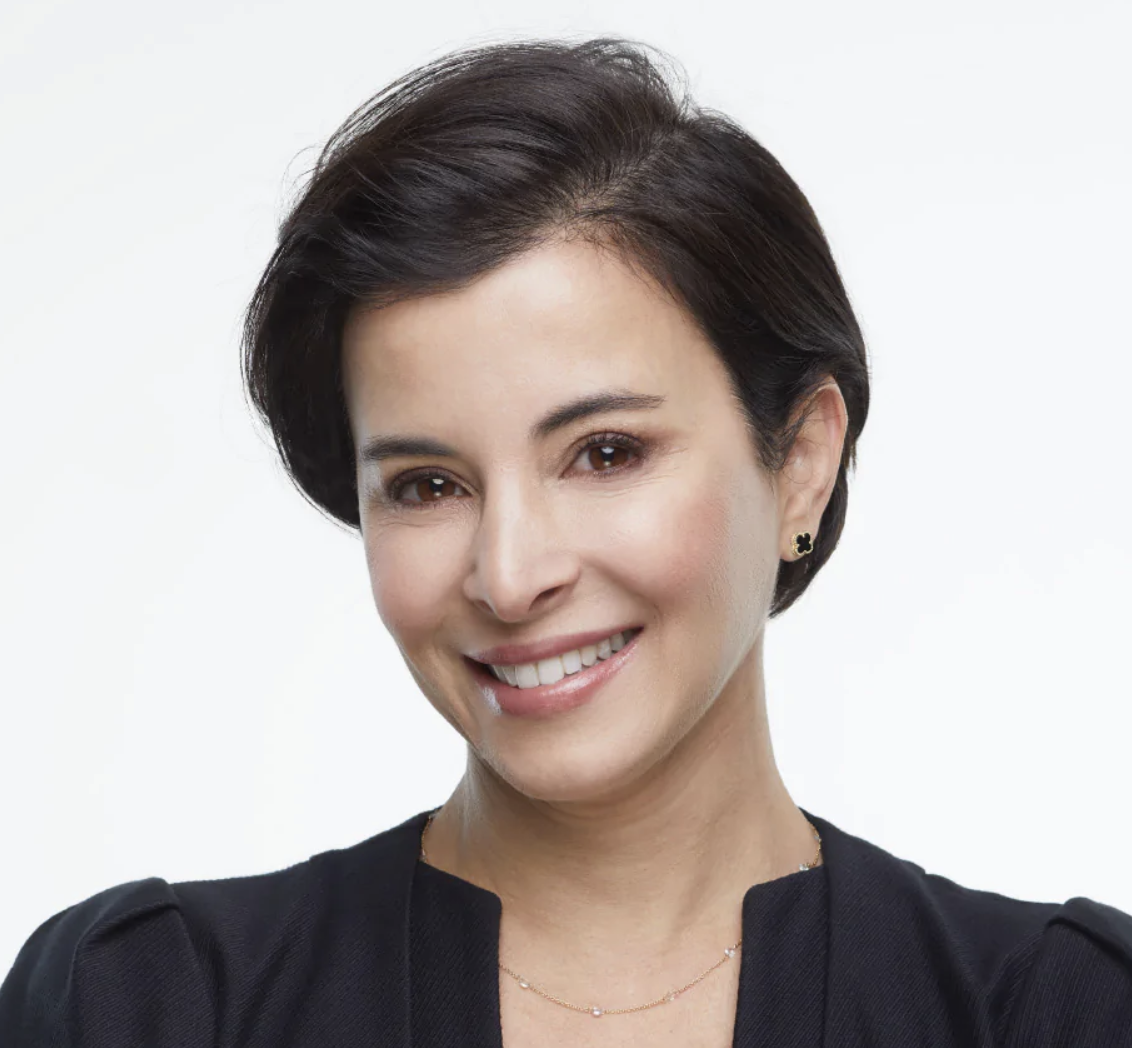
Internationally distinguished board-certified Dermatologist and hormonal skin expert, Dr. Zenovia is committed to researching and developing innovative methods to combat leading skin issues from a 360 holistic perspective, including hormonal balance for healthier skin at every stage of life. With nearly 15 years of extensive integrated experience in medical dermatology, surgical dermatology, Mohs Micrographic Surgery and aesthetic treatments, Dr. Zenovia is renowned for her “deeper than skin” philosophy that addresses the root cause of symptoms. Her unique hormonal dermatology expertise allows her to examine the structure, function, and physiology of skin at the biochemical level to achieve maximum results. Dr. Zenovia is also Founder and Head Dermatologist of ZENA Medical in Newport Beach, CA where she is highly sought-after amongst her high-profile clientele for her natural, “just under-done” cosmetic artistry.

Samantha Holender is the Senior Beauty Editor at Marie Claire, where she reports on the best new launches, dives into the science behind skincare, and shares the breakdown on the latest and greatest trends in the beauty space. She's studied up on every ingredient you'll find on INCI list and is constantly in search of the world's glowiest makeup products. She's constantly tracking the biggest nail and hair trends to pop up in the beauty space, going backstage during fashion weeks, tracking celebrity looks, and constantly talking to celebrity hair stylists, nail artists, and makeup artists. Prior to joining the team, she worked as Us Weekly’s Beauty and Style Editor, where she stayed on the pulse of pop culture and broke down celebrity beauty routines, hair transformations, and red carpet looks. Her words have also appeared on Popsugar, Makeup.com, Skincare.com, Delish.com, and Philadelphia Wedding. Samantha also serves as a board member for the American Society of Magazine Editors (ASME). She first joined the organization in 2018, when she worked as an editorial intern at Food Network Magazine and Pioneer Woman Magazine. Samantha has a degree in Journalism and Mass Communications from The George Washington University’s School of Media and Public Affairs. While at GWU, she was a founding member of the school’s HerCampus chapter and served as its President for four years. When she’s not deep in the beauty closet or swatching eyeshadows, you can find her obsessing over Real Housewives and all things Bravo. Keep up with her on Instagram @samholender.
